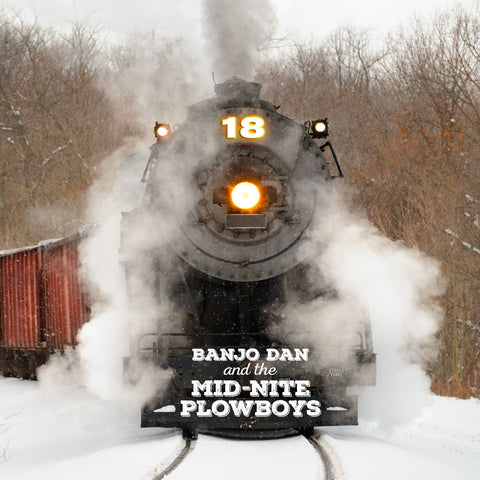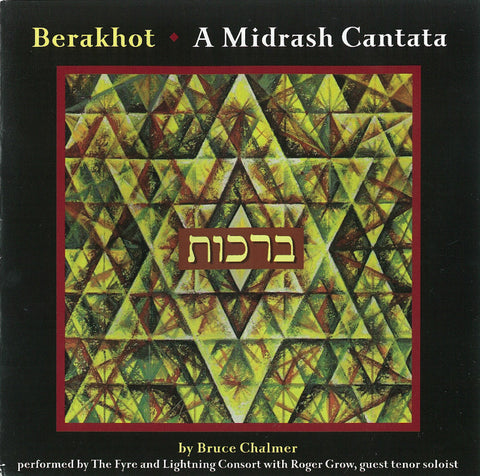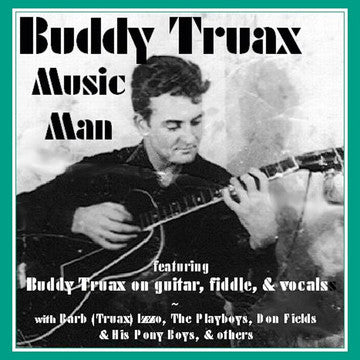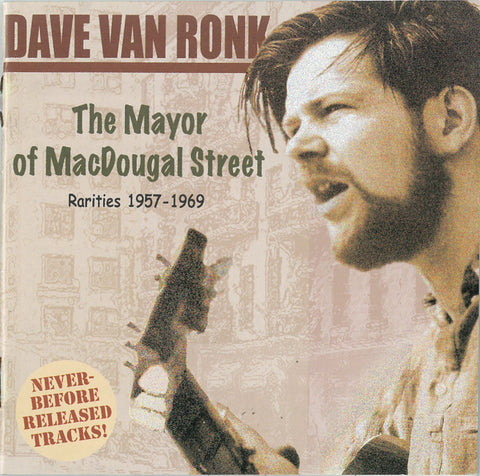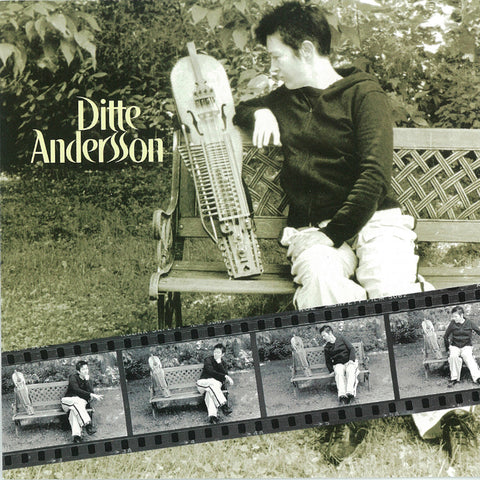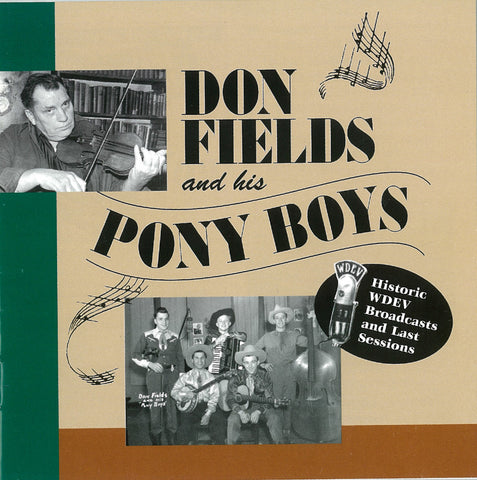
Don Fields & His Pony Boys: Historic WDEV Broadcasts and Last Sessions MCM-4004
Digital Download available from your favorite site including
Rare recordings from the King of the Vermont Cowboys! From the mid-1930s through the 1950s, the Vermont airwaves resounded to the live sounds of "cowboy bands"-playing a mixture of traditional fiddle tunes, country and western songs, jazz standards, and pop tunes of the day. At night, these bands drew large crowds to barn dances throughout the state. In central and northern Vermont, the "king" of these musical cowboys was Waterbury resident and virtuoso fiddler Don Fields, whose Pony Boys always sported the hottest players on guitar, tenor banjo, accordion, bass, and sometimes steel guitar and drums.
Now, for the first time, the music of these radio icons is available on a recording-"Don Fields and His Pony Boys: Last Sessions and Historic WDEV Broadcasts." Produced by musician/educator Mark Greenberg, the CD features 28 tracks, half from rare recordings of live WDEV radio shows from the 1940s and the other half from a session with Fields and former Pony Boys Mort (Smokey) and Lois Carey. Greenberg recorded the session with the Careys, of Waterbury, at Fields' Duxbury, Vermont home, shortly before the fiddler's death in 1983. Smokey played tenor banjo and guitar and Lois played accordion and sang. Fields was in good spirits, although his health prevented him from attending that summer's Midsummer Festival of the Arts in Montpelier, where he was honored for his contributions to Vermont's culture and heritage. Both of the Careys died in the 1990s.
The live radio material was recorded directly off the air by Waterbury Center resident Ernest Metayer on small, plastic disks. Metayer's widow, Emily, shared these disks with Greenberg in the 1980s, but their quality was too poor to consider releasing them to the public at the time. Since then, however, computer technology enabled Greenberg to clean up the sound and edit the fragments into performances that capture the quality, spontaneity, and excitement of the original radio shows. Don Fields was born in 1913 in Montreal but came to Waterbury a few months later with his family. As a young boy, Fields showed immediate talent on the violin, and his teacher hoped to send his prized student to Europe to pursue a classical career. But the death of his father in 1928 forced Fields to quit high school and get a job. He also started playing with other local musicians and soon became one of WDEV's first announcers. He also was WDEV's first musician, playing solo violin night after night as engineers tested the equipment and signal before the station officially went on the air. According to WDEV owner, Ken Squier, postcards from as far away as Los Angeles testified both to WDEV's range and Fields' artistry.
Fields formed the Pony Boys in the mid-30s, and the versatile group quickly became one of the region's most popular dance bands. Fields often played saxophone on the popular and swing numbers, but it was his fiddling, with its sweet, liquid tone that moved the feet and captured the hearts of many Vermonters. By the 1960s, however, rock and roll had taken over, and Fields decided to hang up his bow.
Producer Greenberg met Fields in the early 80s and recorded a series of interviews with him. He also interviewed the Careys and former Pony Boys Buddy Truax, Zeke Zelonis, Bernie Gladden, and Chuck Donnelly. Portions of these interviews appeared in the radio documentary "Don Fields and His Pony Boys: One More Ride," which aired on WDEV shortly after Fields' death. Greenberg has also written an article on Vermont's cowboy bands for the Winter, 2005, issue of "Vermont Life." Although reluctant at first, Fields eventually agreed to let Greenberg record him and the Careys. As on their radio shows, Fields and the Careys played music ranging from the traditional "Devil's Dream" to the popular 19th century song "Frankie and Johnny" to Fats Waller's "Honeysuckle Rose." The radio broadcast tracks include the western classics "Ragtime Cowboy Joe" and "Tumbling Tumbleweeds," as well as fiddle tunes, sentimental songs, and even a square dance with caller.
Listen to Samples
We Also Recommend



